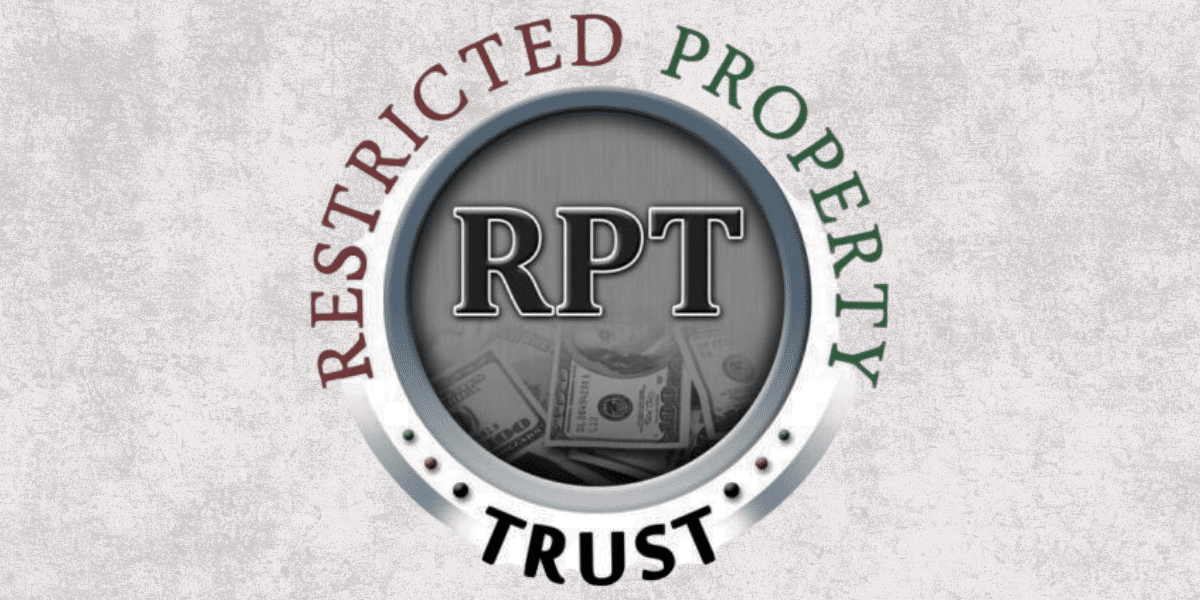For business owners looking to optimize their tax planning strategies, the Restricted Property Trust (RPT) offers a proven, consistent solution. With over 20 years of success, the RPT has become one of the most trusted tax deferral strategies available today. Its ability to reduce taxable income while offering full compliance with federal tax laws makes it an attractive option for businesses of all sizes.
Reducing Taxable Income
The Restricted Property Trust allows business owners to reduce their taxable income by up to 70%, providing significant financial benefits. This reduction can free up resources that can be reinvested into the business or used for long-term financial planning, such as retirement or buy-sell agreements. Unlike other tax strategies that offer short-term gains but have legal risks, the Restricted Property Trust offers a stable, long-term solution for reducing tax liabilities.
No More “Gray Area” Concerns
In its early years, the Restricted Property Trust was criticized as existing in a legal “gray area,” with some financial advisors claiming that its legality was uncertain. However, extensive IRS audits and federal court cases have thoroughly debunked these concerns. The Restricted Property Trust has been proven to be a lawful and allowable deduction, and business owners who adopt it can do so with full confidence in its legality.
Clearing Up IRS Notice 2007-83
One key moment in the Restricted Property Trust’s legal journey was its removal from the IRS’s list of questionable transactions. IRS Notice 2007-83 initially raised concerns about certain tax avoidance schemes, but it has since been vacated. The tax consequences associated with the Restricted Property Trust have been shown to differ significantly from those outlined in the notice, further proving that the Restricted Property Trust is a lawful and legitimate tax deferral strategy.
A Conservative and Reliable Approach
The Restricted Property Trust offers a conservative and reliable approach to tax deferral. While other aggressive tax strategies may offer the potential for short-term gains, they often come with legal risks and the possibility of penalties. The Restricted Property Trust, on the other hand, is designed for business owners who prioritize long-term financial success and compliance with federal tax laws. It offers a secure way to reduce taxable income without the risk of audits or penalties.
Flexible for All Business Types
One of the Restricted Property Trust’s most attractive features is its flexibility. It works seamlessly with various corporate structures, including S Corporations, C Corporations, partnerships, and LLCs (as long as the LLC is not taxed as a single-member LLC). Additionally, the Restricted Property Trust can be set up alongside other corporate benefit plans, such as qualified retirement plans, without interfering with the amounts contributed to those plans.
Ideal for Buy-Sell and Succession Planning
In addition to its tax deferral benefits, the Restricted Property Trust is a valuable tool for buy-sell and succession planning. Entrepreneurs preparing for the sale or transfer of their company can use the Restricted Property Trust to manage these transitions in a tax-efficient manner. By incorporating the Restricted Property Trust into their financial strategy, business owners can reduce their tax liabilities while ensuring a smooth and secure transfer of ownership.
No Penalties, Zero Risk
One of the most significant advantages of the Restricted Property Trust is that it carries no risk of penalties or fines from the IRS. Unlike other tax deferral strategies that may come with legal complications, the Restricted Property Trust has been fully vetted and legally upheld. Entrepreneurs who adopt the Restricted Property Trust can do so knowing that they are using a secure, penalty-free strategy to reduce their taxable income.
A Legacy of Success
For more than twenty years, the Restricted Property Trust has delivered exactly what it promises—significant tax savings and financial benefits for business owners across the United States. Despite facing legal challenges and enduring intense scrutiny from the IRS, the Restricted Property Trust has emerged stronger than ever. Entrepreneurs who implement the Restricted Property Trust can do so confidently, knowing they are participating in a time-tested and legally sound tax deferral strategy that works 100% as advertised.
Published by: Khy Talara
















